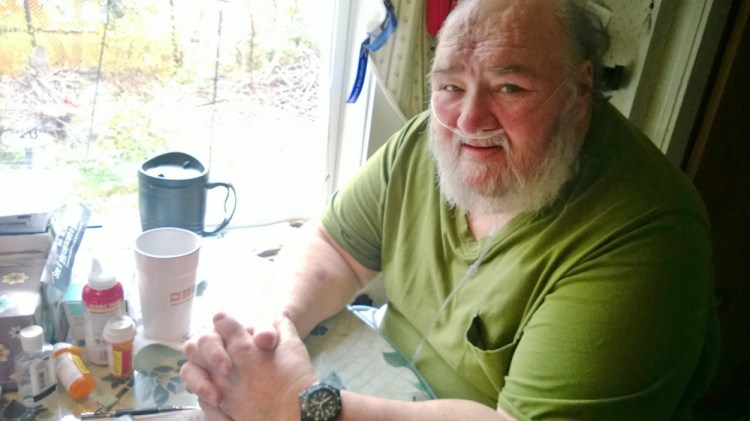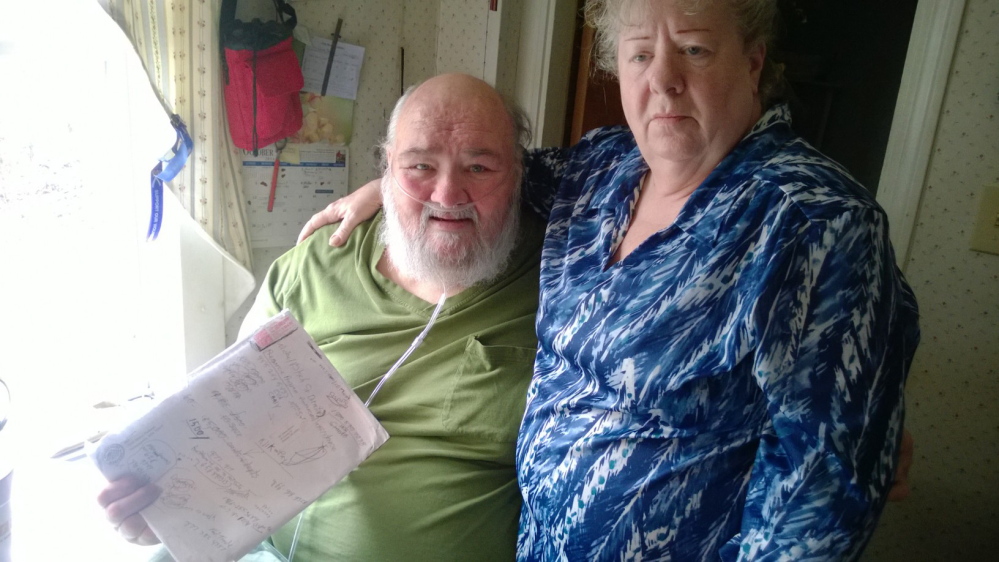OAKLAND — A disabled Oakland man who lives on a fixed income of $1,050 a month was defrauded of $1,500 this week in a phone scam promising to provide him grant money to repair his garage and basement.
Edwin Brown, 65, said he is speaking out about the scam in the hope that no one else falls prey to the scammers.
“These guys called me up and wanted to help me out, and I really believed it,” said Brown, who has chronic obstructive pulmonary disease and diabetes. It is difficult for him to leave his home because of severe arthritis and broken bones in his back.
A former railroad worker and business owner, Brown said he believes he was targeted for the scam while researching grants to help pay for needed repairs to his garage, which he said his insurance provider won’t cover, and his basement, which has water in it.
On Wednesday, Brown got a call from someone claiming to represent the “Resource Program of Financial Assistance.” Brown said he spoke to at least four people claiming to be with the organization who promised his low-income status would ensure him grant money.
They vowed to provide $64,000, but Brown said a man claiming to be Michael Black, the organization’s senior director, asked for $1,500 to begin the grant filing process.
When Brown resisted, they provided him a toll-free number to cancel the transaction at any time, so he gave them his credit card information.
“I figured there were so many people it must be kind of legit, you know?” he said.
When Brown called the cancellation number the next day, it didn’t work. He hasn’t been able to reach the group since.
After speaking to Citibank, Brown said he was told the transaction could not be reversed, because he gave his credit card information willingly.
“They ended up telling me they took $1,500 out,” he said. “I almost cried when they said that.”
Brown reported the crime to the state attorney general’s office, the Oakland Police Department and the Federal Trade Commission.
Oakland Police Captain Rick Stubbert said the department normally refers such cases to the attorney general for investigation. He advised residents against giving personal bank information out to people they do not know.
“If it seems suspicious, then I wouldn’t do it,” he said.
Tim Freeley, in the attorney general’s office, said such fraud cases are expensive and difficult to prosecute — often because the perpetrators are hard to find.
“It’s very resource intensive and extremely difficult,” Freeley said. “You don’t even know if these people are in the United States.”
Freeley also said the phone scams are common, and perpetrators often find new victims by putting a new twist on an old scam.
“It has been around for a long time, but if you’ve never experienced it, it might seem new, and they are always changing the details a little bit,” he said. “One person gets a grant to rebuild their garage and another person gets the same scam, but it’s the lottery.”
Brown and his wife, Kathy, advise that people in the same situation should contact the attorney general’s office before giving out banking information.
“Well get through it somehow,” Brown said. “God’s been treating me pretty darn good, kept me alive, gave me a wonderful woman.”
Evan Belanger — 861-9239
ebelanger@centralmaine.com
Twitter: @ebelanger
Send questions/comments to the editors.





Success. Please wait for the page to reload. If the page does not reload within 5 seconds, please refresh the page.
Enter your email and password to access comments.
Hi, to comment on stories you must . This profile is in addition to your subscription and website login.
Already have a commenting profile? .
Invalid username/password.
Please check your email to confirm and complete your registration.
Only subscribers are eligible to post comments. Please subscribe or login first for digital access. Here’s why.
Use the form below to reset your password. When you've submitted your account email, we will send an email with a reset code.